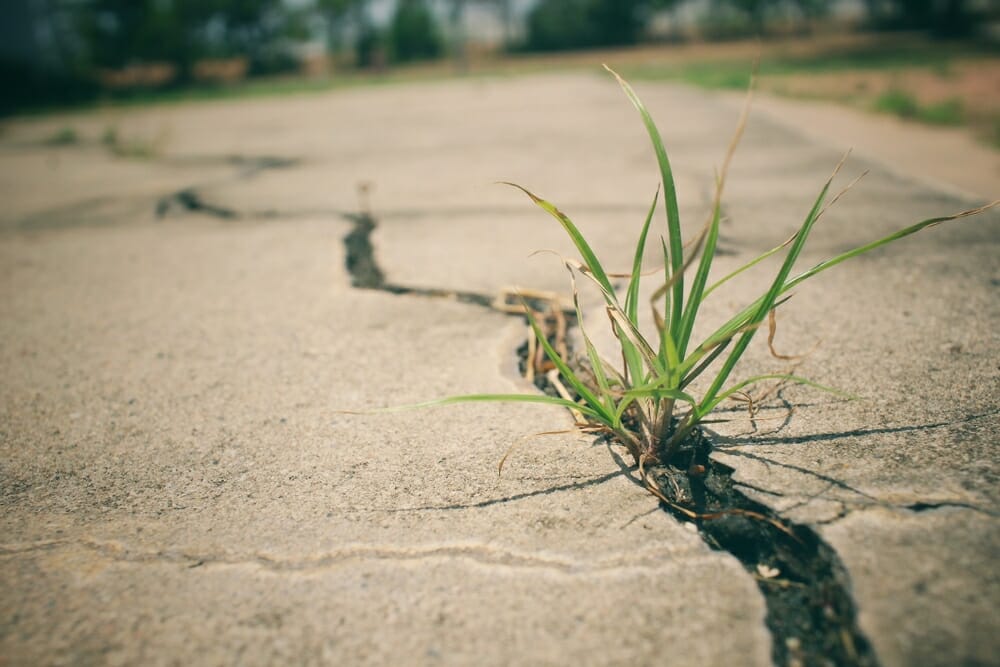What To Do When You See Cracking In Asphalt
Asphalt is a durable and versatile paving material, but it’s not immune to damage. Over time, various factors can contribute to asphalt cracking, compromising the structural integrity and aesthetic appeal of your driveway, parking lot, or roadway. This guide will explore the common causes of asphalt cracking, effective prevention strategies, and repair options to help you maintain a smooth and safe pavement surface.
Understanding Asphalt Cracking
Asphalt cracking refers to the development of cracks, fissures, or fractures in the asphalt pavement surface. These cracks can range in size and severity, from hairline cracks to large, interconnected fissures that can compromise the pavement’s structural integrity.
The most common causes of asphalt cracking are as follows:
- Standing water
- UV damage
- Extreme temperature changes
- Chemical damage
- Bad installation
- Weak edging
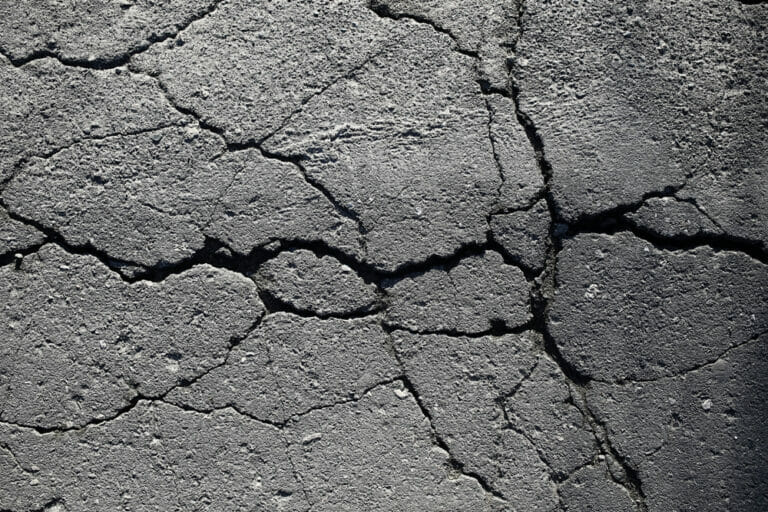
Common Causes of Asphalt Cracking
Several factors contribute to asphalt cracking:
- Age and Oxidation: As asphalt ages, it undergoes oxidation, a process that causes the asphalt binder to harden and become brittle, making it more susceptible to cracking.
- Traffic Load: Heavy traffic, especially from large trucks or vehicles with frequent braking and turning, can put stress on the asphalt, leading to fatigue cracking.
- Temperature Fluctuations: Extreme temperature changes, particularly freeze-thaw cycles, cause the asphalt to expand and contract, leading to cracking.
- Water Damage: Water penetration is a major cause of asphalt cracking. Water can seep into cracks and freeze, expanding and widening the cracks.
- Poor Installation: Improper compaction, inadequate base preparation, or using low-quality materials during installation can make the asphalt more prone to cracking.
- Chemical Exposure: Spills from vehicles, such as oil, gasoline, and de-icing agents, can weaken the asphalt binder and contribute to cracking.
- Tree Roots: Tree roots growing beneath the asphalt can exert pressure and cause the pavement to heave and crack.
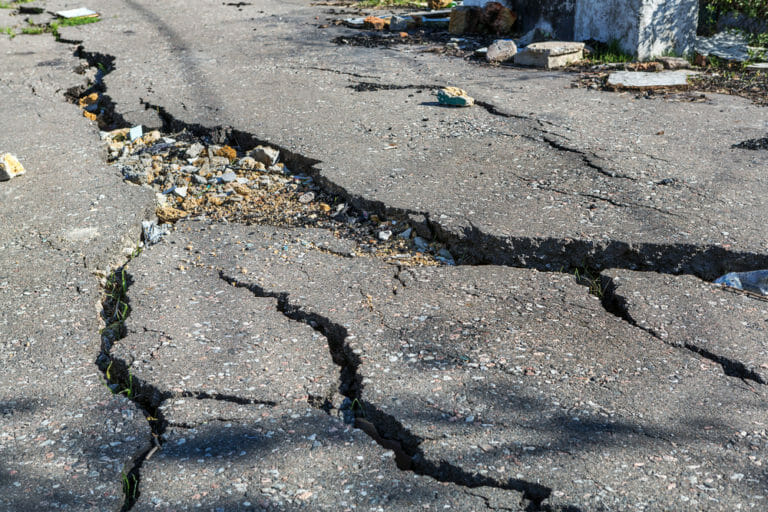
Types of Asphalt Cracking
Different types of asphalt cracking indicate different underlying causes:
- Fatigue Cracking: Also known as alligator cracking, this appears as interconnected cracks forming a pattern resembling alligator skin. It’s often caused by heavy traffic loads or a weak base.
- Block Cracking: Large, interconnected rectangular cracks that typically occur in older asphalt due to age-related hardening or temperature changes.
- Edge Cracking: Longitudinal cracks that appear along the edges of the pavement, often caused by a lack of support or poor drainage.
- Linear Cracking: Long, straight cracks that run parallel to the direction of traffic, often caused by pavement fatigue or temperature changes.
- Transverse Cracking: Cracks that run perpendicular to the direction of traffic, often caused by temperature-induced shrinkage of the asphalt
Preventing Asphalt Cracking
Proactive measures can help prevent or minimize asphalt cracking:
- Proper Installation: Ensure proper compaction, adequate base preparation, and the use of high-quality materials during installation.
- Drainage: Install effective drainage systems to prevent water from pooling on the surface or seeping into the pavement structure.
- Sealcoating: Apply a sealcoat every few years to protect the asphalt from water damage, UV rays, and chemical exposure.
- Crack Filling: Fill cracks as soon as they appear to prevent water infiltration and further damage.
- Regular Maintenance: Regular sweeping, cleaning, and inspections can help identify and address potential problems before they worsen.
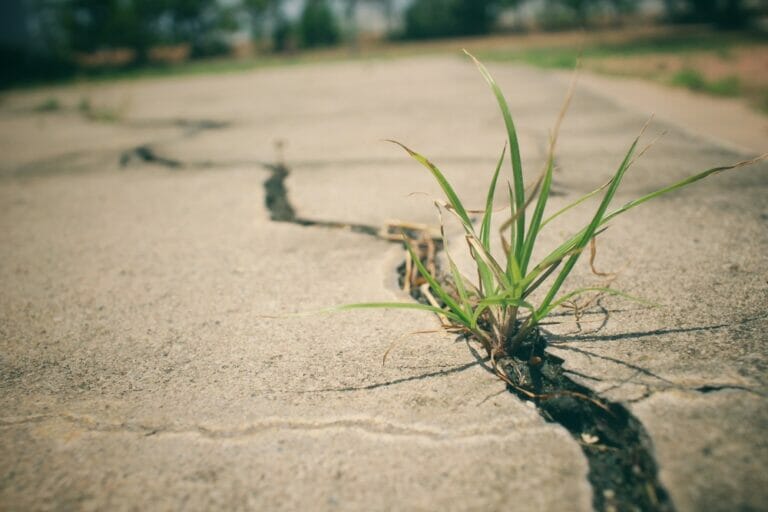
Repairing Asphalt Cracking
The appropriate repair method for asphalt cracking depends on the severity and type of cracking:
- Crack Filling: For minor cracks, crack filling with a specialized sealant can prevent water penetration and further damage.
- Patching: For larger cracks or potholes, patching with asphalt mix can restore the surface and prevent further deterioration.
- Resurfacing: For widespread cracking or significant damage, resurfacing with a new asphalt overlay can restore the pavement’s structural integrity and appearance.
- Reconstruction: In cases of severe damage or complete pavement failure, reconstruction may be necessary, involving removing the existing asphalt and rebuilding the pavement from the base up.
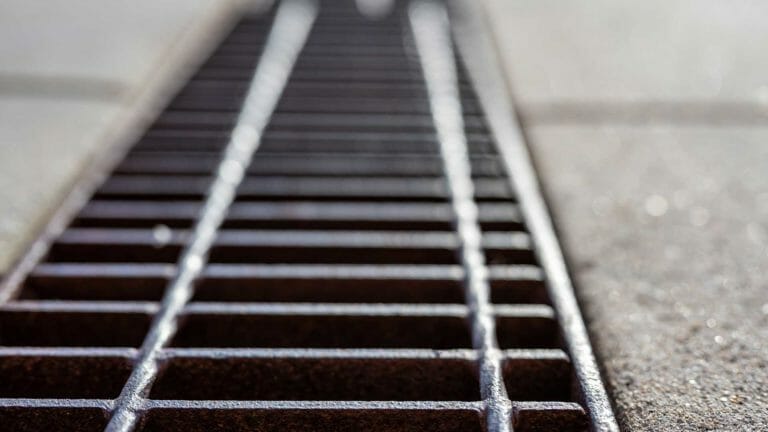
Install a Proper Drainage System
With water being the most significant cause of asphalt cracking, you want to have a properly functioning drainage system. French drains and catch basins are a great option here in the rainy Pacific Northwest. They effectively divert water away from your driveway or parking lot, ensuring it remains clear.
Apply Sealant
Generally speaking, applying a sealant can help prevent cracking from getting worse. Filler stops water from infiltrating your asphalt and expanding the existing cracks. Sealing cracks early on can save you the stress of your cracking getting worse and turning into a more expensive issue.
Sealcoating
After filling your cracks with sealant, you should consider applying a seal coat for an extra layer of protection. A seal coat protects your asphalt against water, oil, and chemical damage, thus reducing the risk of cracking.
How to Fix Asphalt Cracking on Your Driveway or Parking Lot
Depending on the extremity of your asphalt cracking, the solutions range from simple to complicated. If you are dealing with extensive cracking even after preventative measures, now is the time to contact an asphalt paving company for damage repair.
Asphalt Repatching
Asphalt repatching is an effective way to fix cracking without the expensive replacement price tag. However, it only works for minor or surface cracks. Patching may not be enough to fix the problem, especially if it’s an underlying foundational issue.
Asphalt Repaving
You should contact an asphalt paving company for damage repair if you are dealing with extensive cracking that won’t go away even after sealing and patching. Your driveway or parking lot may need asphalt repaving.
You should consider repaving your asphalt driveway or parking lot under the following circumstances:
- Fatigue cracking
- Standing water
- Extreme potholes & cracking
- Sinking pavement
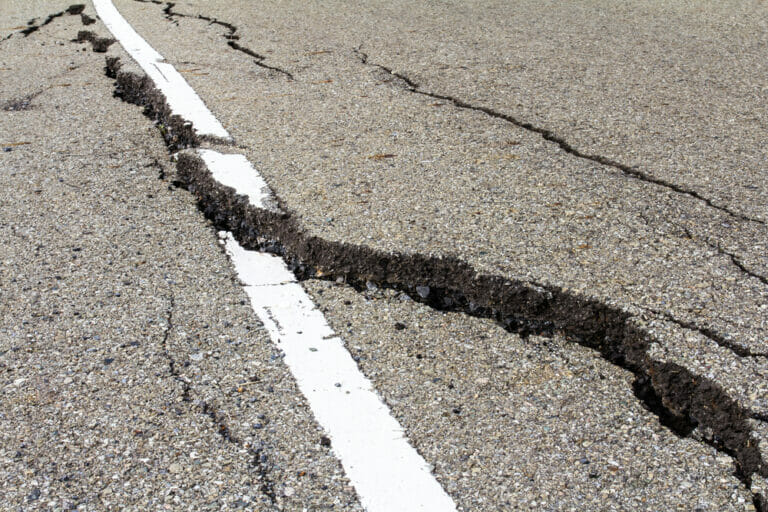
Contact NYS Enterprises
Asphalt cracking is a common problem that can be prevented or minimized with proper installation, maintenance, and timely repairs. By understanding the causes of cracking and implementing effective prevention and repair strategies, you can extend the lifespan of your asphalt pavement and maintain a safe and attractive surface for your property.
Get Started


